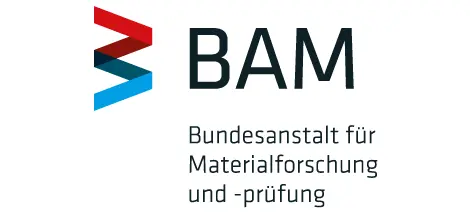Workshop: Advancements of Analytical Techniques for PFAS
-
BAM Bundesanstalt für Materialforschung und -prüfung
Advancements of Analytical Techniques for Per- and Polyfluoroalkyl Substances (PFAS): PFAS Analytics for industrial emissions
Per- and polyfluoroalkyl substances (PFAS) are a class of more than 4700 chemical compounds originating from anthropogenic sources. PFAS have been used extensively in a variety of products and industries, due to their high chemical stability and resistance towards degradation by heat or corrosion. On the downside, these chemical properties imply non-degradability and PFAS have been increasingly linked to cause severe illnesses. As a result, the presence of these compounds in plants and animals especially in areas close to industrial and military locations and the human body all around the world has been recognized as a major challenge for future remediation work.
BAM is working on the development of analytical techniques for PFAS as well as remediation of PFAS contaminated matrices. Moreover, BAM is involved in the European Metrology Network for Pollution Monitoring (POLMO), which brings together calibration laboratories, proficiency tests providers, standardization and accreditation bodies in the pollution monitoring sector.
The main goal within this workshop will be the discussion of advantages and drawbacks of current state-of-the-art methods in contrast to various novel and less well-known techniques for PFAS analytics. After the first two successful workshops in 2021 and 2023, this year we will focus on PFAS analytics for industrial emissions. In this context, the Euramet project MetZeroPol will also be launched in summer 2025.
Registration via Webex. The workshop is free of charge.
Contact:
Dr. Christian Vogel
Bundesanstalt für Materialforschung und -prüfung (BAM)
Focus Areas Chemistry and Process Engineering and Environment
